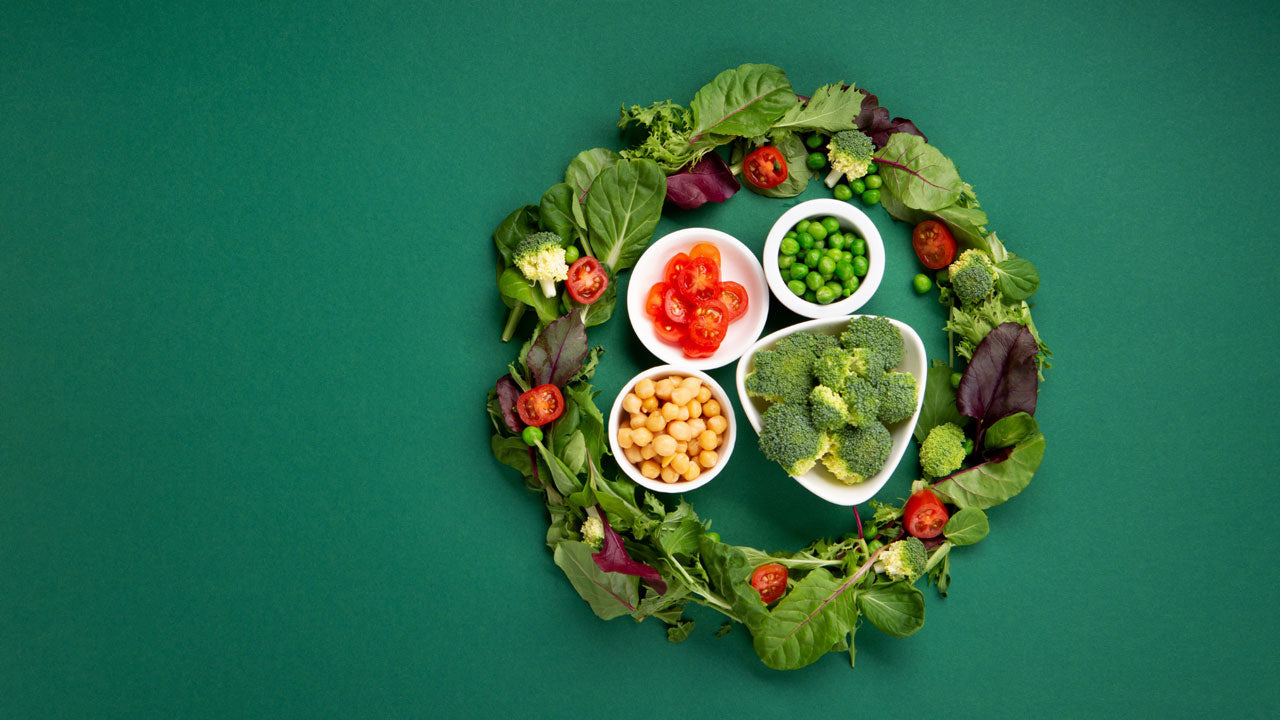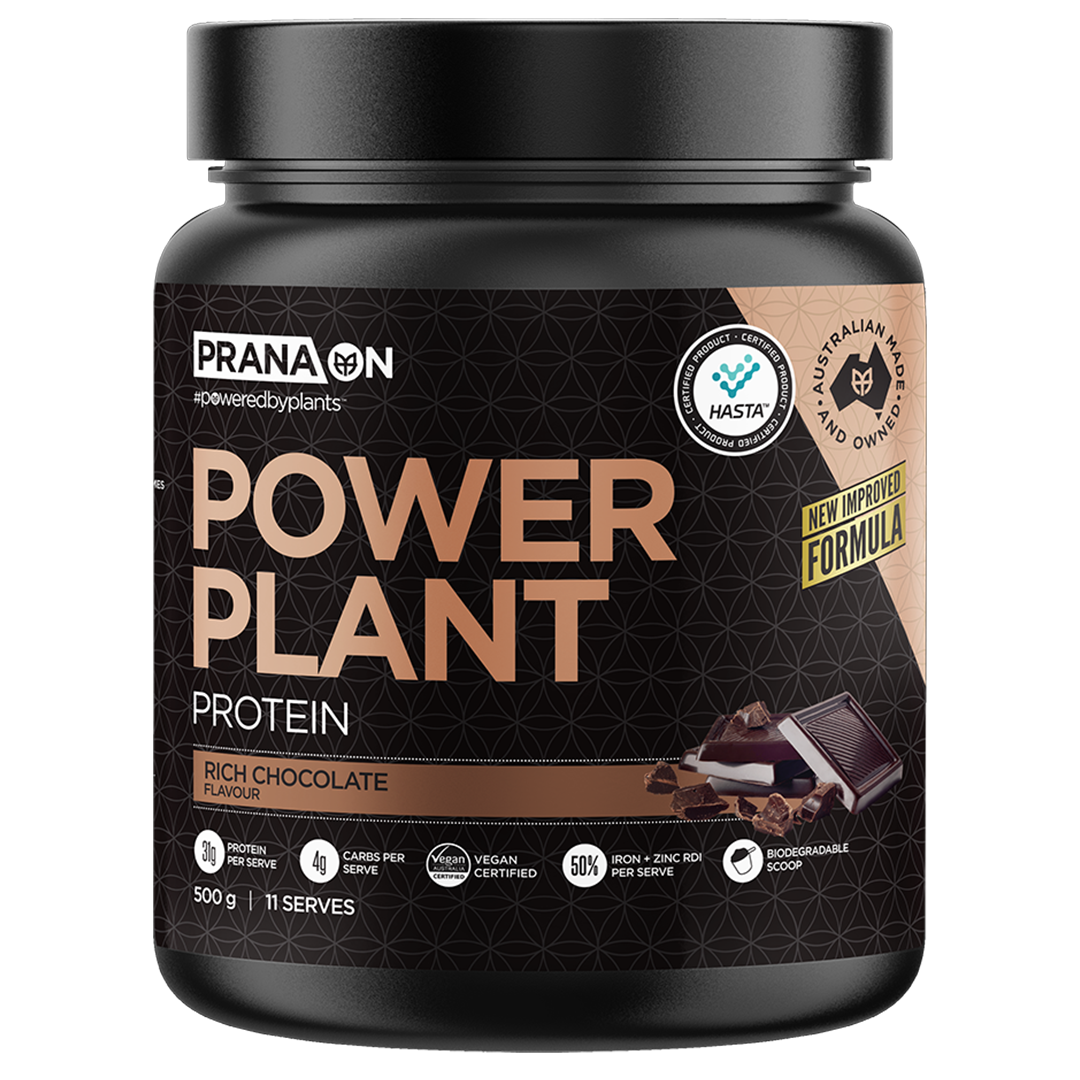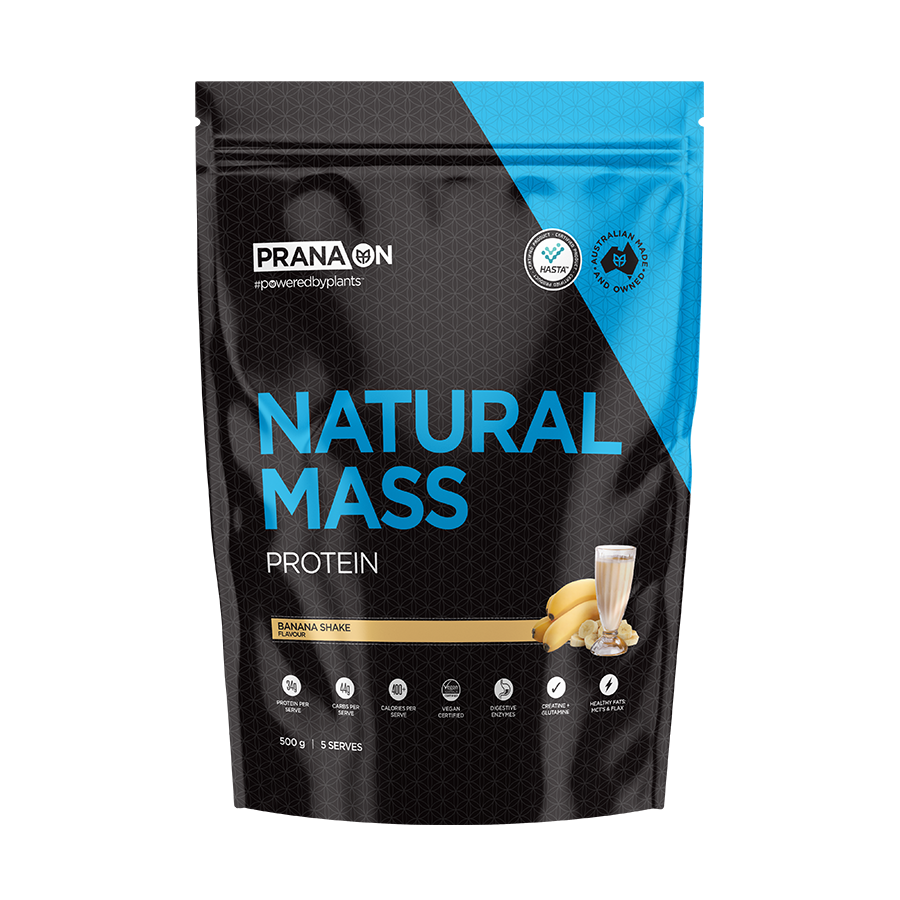Why Plant-Based Protein Is The Future Of Fitness & Health

In today’s world, almost everyone is on a quest to achieve peak athletic performance and a healthy body. Whether you're a high-performance athlete aiming for greatness, navigating dietary restrictions or simply on a quest for higher protein intake while embracing a plant-powered lifestyle, plant-based protein is a solution worth considering.
Below, we’ll delve into why plant-based protein is steering the future of fitness and health. But first, let’s talk about the advantages of going green with your diet.
Health benefits of a plant-powered diet
Embarking on a plant-powered journey can be a transformative experience for your health. Here are some health benefits for those who choose to embrace the green side of nutrition.
- Heart smart — When you opt for plant-based protein over meat, you're essentially extending a friendly hand to your heart. This dietary choice substantially cuts down on the intake of saturated fats and cholesterol commonly found in animal products, potentially reducing the chances of cardiovascular disease.
- Diabetes defence — One of the standout qualities of a plant-based protein diet is its role as a robust defence against type 2 diabetes. The key is to have a diet that’s low in saturated fats and higher in fibre.
- Prolonged lifespan — Embracing plant-based sources, especially when combined with a balanced diet, may contribute to a longer and healthier life.
- Cholesterol champion — Maintaining healthy cholesterol levels is paramount for heart health. Here, plant-based diets shine, as they naturally contain low levels of saturated fats and are devoid of cholesterol.
- Shielding against strokes — A diet rich in fruits and vegetables can serve as a protective shield against strokes.
A plant-based diet offers a double advantage by not only promoting better health but also reducing environmental footprint. By minimising the consumption of animal products, which are resource-intensive to produce, individuals can significantly lower their carbon emissions and water usage.
The environmental edge of plant-based protein
In our interconnected world, every choice has an impact on the environment. Plant-based protein stands out as a mindful option, aligning with the goal of nurturing both ourselves and the planet.
- Less water consumption — Plant proteins such as legumes, nuts and grains take up far less water compared to their meaty counterparts like beef, poultry and pork. Case in point: beef's water footprint is six times heftier than that of pulses and 20 times larger than that of cereals and starchy roots. If you value sustainability, conserving water is non-negotiable.
- Curbing carbon emissions — A study spotlighted that switching from omnivorous to plant-based diets slashed personal greenhouse gas emissions by half. Even going for a lacto-ovo-vegetarian path made a commendable 35 per cent dent in emissions.
Sources of plant protein
If you want to get your protein fix from plant-based sources, you have plenty of choices. Plant-based protein can be derived from whole foods or supplements, offering a wide range of options to suit your diet. High-protein plant foods include tofu, tempeh, edamame, lentils, chickpeas, peanuts, almonds, nutritional yeast, quinoa, chia seeds and more.
However, some plant proteins are incomplete, lacking certain essential amino acids. Fortunately, combining complementary plant proteins can create a complete and nutritious protein source. For example, beans and rice, when eaten together, form a complete protein.
Another source is plant-based protein powders, which have gained popularity as a versatile and sustainable alternative to traditional milk-based protein supplements like whey and casein. These powders often blend different plant proteins to provide a complete amino acid profile.
Here are some common types of plant-based protein powders:
- Soy protein — Soy is considered the most effective plant-based protein, offering a complete amino acid profile. It also contains glutamine, which can aid in muscle recovery.
- Pea protein — Pea protein is similar to whey protein in terms of absorption rate. While it's an incomplete protein on its own, pairing it with another protein source, such as rice, can enhance its effectiveness.
- Rice protein — Brown rice protein is rich in B vitamins and fibre, making it a nutritious choice. Like pea protein, it should be combined with other protein sources to create a complete profile.
Benefits of plant-based protein powders
Considering plant-based protein powders? Here are some reasons to include them in your diet:
- Nutrient density — Plant protein powders are often packed with antioxidants, vitamins and omega-3 fatty acids, making them a nutrient-rich choice.
- High in fibre — Plant proteins naturally contain fibre, promoting digestive health and helping you feel fuller for longer.
- Dairy-free — If you have a dairy allergy or intolerance, plant protein is a perfect alternative.
- Digestibility — Many individuals find plant-based protein powders easier to digest compared to dairy-based options like casein and whey.
- Versatility — Plant protein powders are an excellent supplement for those following plant-based diets who may struggle to meet their protein needs through whole foods alone. Even better, you can mix them into your shakes and smoothies for a healthy, delicious treat.
Embrace a healthier future with plant-based nutrition from PranaOn
By making mindful choices and weaving more plant-based protein into your daily menu, you're essentially fuelling your body for peak performance, nurturing overall health and charting a course towards a sustainable future. So, whether you're an athlete seeking performance excellence or a health buff looking for more ways to go green, consider plant-based protein as your trusty companion on the journey to fitness and vitality.
Elevate your fitness journey with PranaOn’s Power Plant Protein, a dynamic plant-based supplement tailored for those who demand more from their nutrition. Packed with an innovative blend of golden pea, finely milled rice and Australian-grown Faba bean proteins, it not only fuels muscle repair and growth but also supports gut health through probiotics and digestive enzymes.
What truly sets it apart is the smooth, creamy texture and delightful natural flavours achieved without any fillers or artificial ingredients. Embrace a supplement that delivers on taste, performance and purity — try Power Plant Protein today!




Leave a comment